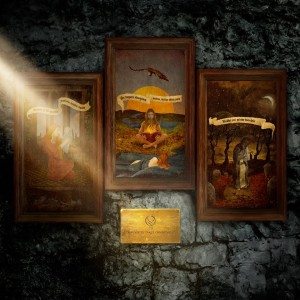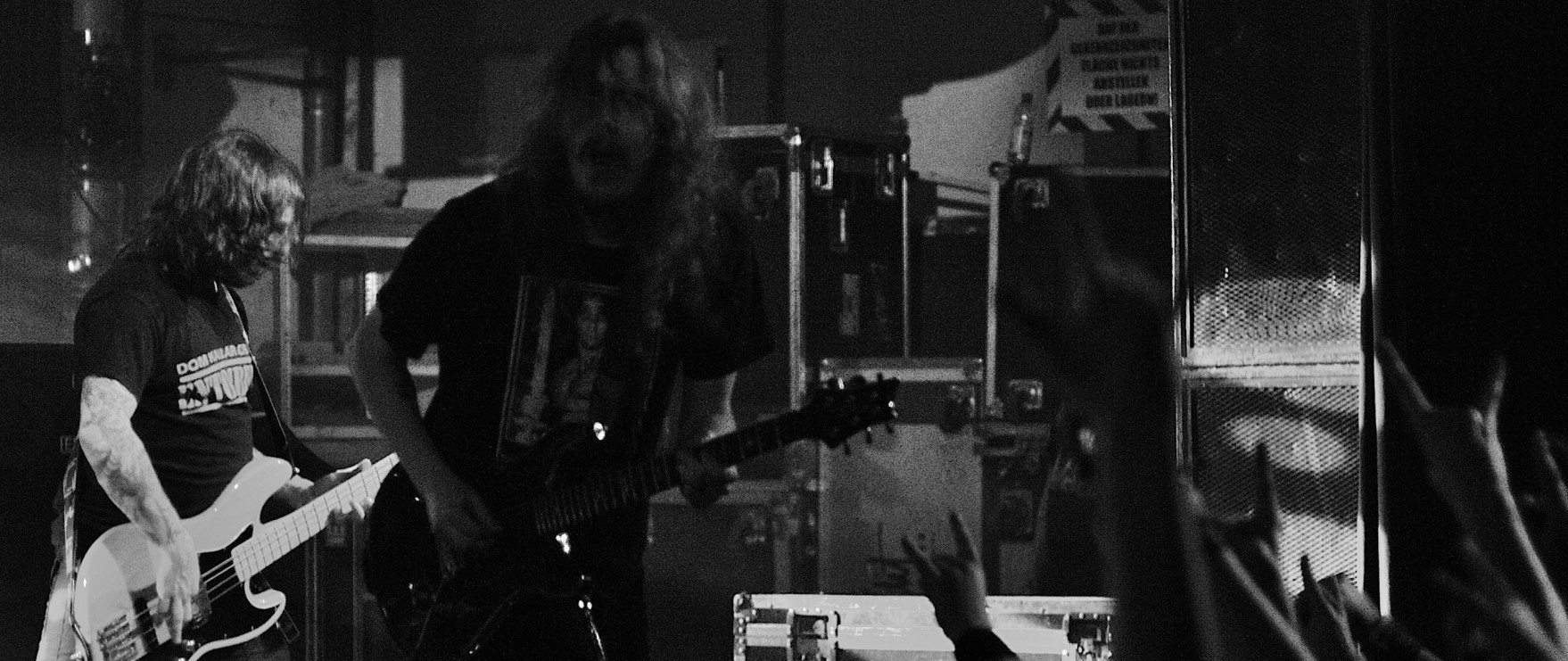Pale Communion
 Perhaps one of the most talked-about bands in the progressive rock / metal scene, Opeth recently took a large step in a different direction with their 2011 release Heritage, which was met with a rather mixed response. 3 years have passed since then, and Opeth have once again returned to the spotlight with Pale Communion – an album that manages to address almost all of the issues held against its predecessor, though still maintaining a few problems of its own.
Perhaps one of the most talked-about bands in the progressive rock / metal scene, Opeth recently took a large step in a different direction with their 2011 release Heritage, which was met with a rather mixed response. 3 years have passed since then, and Opeth have once again returned to the spotlight with Pale Communion – an album that manages to address almost all of the issues held against its predecessor, though still maintaining a few problems of its own.
If you ever ask a well-informed metal fan to talk about Opeth, then you better get ready for a mouthful. Ever since the mid-to-late 90s, the band has become increasingly well-known for releasing some of the best material to ever hit the scene, with albums such as Still Life, Blackwater Park, and Ghost Reveries being commonly placed among the top metal albums of all time. This being said, they recently stirred up a lot of controversy within music circles due to their rather noticeable shift in style on 2011’s Heritage. Fans of the highly-acclaimed progressive death metal group were now being treated to Opeth’s take on 70s progressive rock, and this stylistic shift to a much softer, ethereal sound caught many off guard and split opinions heavily.
It seems, however, that Opeth have taken many of the criticisms held against Heritage to heart, because Pale Communion addresses a lot of them in stride. Most importantly, the band has managed to execute their new, more delicate style with much more coherence than in their previous work. The sound they created with Heritage has been taken and used as a foundation on which they have now crafted a far more tactile and recognisable identity. Tracks like the opener ‘Eternal Rains Will Come’ carry a signature sound to them that, while different from their previous works, is undeniably ‘Opeth-ian’. The band maintains that vintage flair of 70s prog rock that they seem to love, but with a rather full and emotive production (courtesy of Steven Wilson) which adds a modern feel and enhances the ominous intensity of the work, a feature that seems to be Opeth’s bread and butter, no matter what style they perform in.
Pale Communion also happens to be one of Opeth’s more unique releases, with the group adding a good number of different songwriting and performance features that not many would have expected from the ominous proggers. For example, this is the first time fans really hear vocalist Mikael Åkerfeldt trying to go ‘all the way’ with the clean side of his voice, pulling off highs that few saw coming. This being said, whether or not they really work is debatable; at times it feels like Åkerfeldt is straining his voice far more than he should, making these moments feel rather forced and inorganic.
The band has managed to execute their new, more delicate style with much more coherence than in their previous work.
However, the biggest and most noticeable difference noted throughout Pale Communion, from both a songwriting, performance and production standpoint is the emphasis placed on the drumming of Martin “Axe” Axenrot. Simply put, if this album was a mosaic, the drumming would be the golden centrepiece that shone gloriously in the sun. Whether it be backing the heavier riffs of ‘Cusp of Eternity’, the jazzier interludes of ‘Goblin’ or the moody and melancholic strings of ‘Voice of Treason’ and ‘Faith in Others’, the drums breathe life into every essence of Pale Communion.
Still, for every little detail that Opeth’s latest release gets right, it suffers from one crippling fault – its lack of remarkability. While almost every track could easily be considered “good”, there’s very little that happens throughout the 50+ minutes that this album runs which will really stun or impress listeners. The only example throughout the whole collection of songs that ever seemed to evoke this feeling came at the end of ‘Voice of Treason’, with Åkerfeldt’s vocals soaring over an incredibly grandiose combination of the entire band performing alongside a full string orchestra, making this track easily the best on the album. However, unfortunately, every other track seems to range from “pretty good” to “mediocre”, a feature most noticeable on the track ‘Cusp of Eternity’, which feels like it was written using the guidelines from the Metal 101 handbook.
Hence, in conclusion, Pale Communion easily improves upon the new sound offered up by Opeth over their latest releases. The band feels much more comfortable and in control of what they’re doing, while still remaining unafraid to take risks. However, at the same time, this sense of comfort also seems to stem a little too much into the core songwriting, leading to a lot of songs being rather unremarkable and unmemorable, easily hampering the experience of any music listener looking for something “more”. A pretty good album, but hardly a shocker.
Key Tracks: ‘Eternal Rains Will Come’, ‘Voice of Treason’, ‘Goblin’

Comments